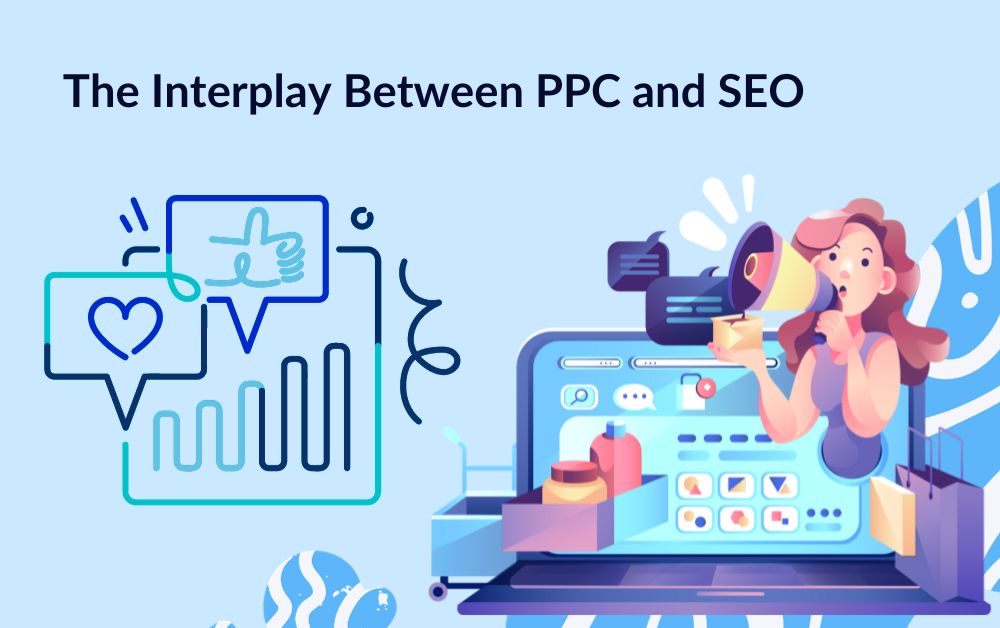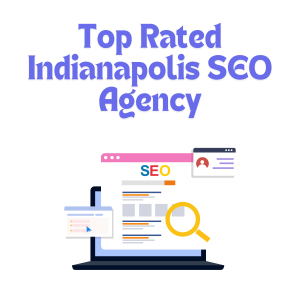
The Interplay Between Ppc And Seo
The interplay between PPC (Pay-Per-Click) and SEO (Search Engine Optimization) is vital in digital marketing. PPC involves paid advertising, where businesses bid for ad placement on search engines. SEO, on the other hand, focuses on organic search results and optimizing web content for higher rankings.
These two strategies complement each other in several ways. PPC can provide immediate visibility, driving traffic to a website while SEO efforts work to improve organic rankings over time. Keyword data from PPC campaigns can inform SEO keyword choices. Furthermore, SEO can enhance the quality score of PPC campaigns, reducing ad costs.
Ultimately, a balanced approach to PPC and SEO creates a comprehensive online presence, maximizing a brand’s visibility and potential for success.
Have you ever searched for something on Google and noticed some results at the top with a little “Ad” label? That’s PPC. Then, right below those, you see other results that aren’t labeled as ads? That’s SEO. If you’re seeking to promote or find SEO services in Dubai, you’ll likely encounter both these tactics. Now, let’s dive deep and understand how these two work together.
1. What are PPC and SEO?
- PPC (Pay-Per-Click): This is a way of advertising where you pay each time someone clicks on your ad. You bid on keywords, and if you bid the highest, your ad shows up at the top of search results.
- SEO (Search Engine Optimization): This is the art of making your website appear in search results naturally or organically, without paying for ads. It involves tweaking your website, creating great content, and more.
2. How Do They Interact?
- Shared Data: When you run PPC ads, you get lots of data – which keywords people click on, what they do after clicking, etc. This data can help improve your SEO strategy. Similarly, SEO data about popular pages or content can inform your PPC strategy.
- Visibility: Sometimes, even if you rank high in SEO, having a PPC ad can double your visibility on the search results page. This means more chances for people to visit your site.
- Testing: PPC results are immediate. You can quickly test if a keyword or ad brings traffic. If it does, you can then work on an SEO strategy around it.
3. Why Use Both?
- Covering Ground: PPC can get pricey, especially for competitive keywords. But with SEO, you can still target those keywords and get traffic, just over a longer period.
- Immediate vs. Long-Term: While PPC gives immediate results, it costs money. SEO takes time but can give lasting results without ongoing costs.
- Trust Factor: Some people skip ads and only click on organic results (those from SEO). Others prefer clicking on ads. By having both, you cater to everyone.
4. Tips for Balancing PPC and SEO:
- Keyword Harmony: Use PPC data to discover which keywords convert visitors into customers. Then, optimize your website for those keywords using SEO.
- Budget Wisely: If you have a limited budget, use PPC for keywords that give sales and SEO for raising awareness and bringing in traffic.
- Stay Updated: The rules of PPC and SEO change. Search engines tweak their algorithms, and user behavior shifts. Keep an eye on trends and adjust accordingly.
5. The Feedback Loop
- Learning from PPC: PPC campaigns provide instant feedback. If a specific ad or keyword isn’t working, you’ll know right away. This allows you to refine and adapt rapidly. On the other hand, insights from PPC – such as high-performing ad copy or landing pages – can be utilized to inform your SEO strategies, optimizing meta descriptions or content for better organic click-through rates.
- Leveraging SEO Insights: SEO can offer insights into the long-term behavior of users. For instance, if certain blog posts or pages have high organic engagement, it might be worth promoting them further with PPC to amplify their reach.
6. Competitive Advantages
- Dominate the Search Page: By leveraging both PPC and SEO, a brand can potentially dominate both the organic and paid sections of a search results page. This increases the chances that a user will click on your website, as opposed to a competitor’s.
- Counteract Negative PR: If there’s negative news about your brand, PPC ads can be quickly deployed to redirect the narrative, while you work on a longer-term SEO strategy to manage online reputation.
7. Adapting Strategies for Maximum Benefit
- Seasonal Adjustments: Perhaps during certain times of the year, competition for PPC keywords spikes (like “chocolate” around Valentine’s Day). An agile strategy might pivot towards SEO during these periods, and focus on PPC during off-peak times.
- Localized Efforts: If you’re a local business, like an SEO agency in Dubai, you might focus your PPC efforts on local keywords, while your SEO strategy might be broader to capture international clients seeking remote services.
8. Understanding The End Game
- ROI (Return on Investment): At the end of the day, both PPC and SEO should offer a return on your investment. Regularly monitor and assess which channels and strategies are offering the best value for money and adjust accordingly.
- Building Brand Authority: While PPC can give you visibility, consistent SEO efforts can cement your position as an authority in your field. For users, seeing a brand consistently at the top of organic search results can boost credibility.
Conclusion
Think of PPC and SEO as two friends who help each other out. Alone, they’re powerful. But together, they can do wonders for your online presence. Whether you’re a blogger, run an online store, or are the top SEO agency in Dubai, understanding the dance between PPC and SEO can be your key to success.
The digital landscape is vast and ever-evolving, and there’s no one-size-fits-all approach. But by understanding the nuances of PPC and SEO, and the powerful interplay between the two, brands can craft a comprehensive strategy. This balanced approach not only ensures immediate visibility and traffic but lays the groundwork for long-term, sustained online growth.
For more information, contact us – info@prontosyscom






